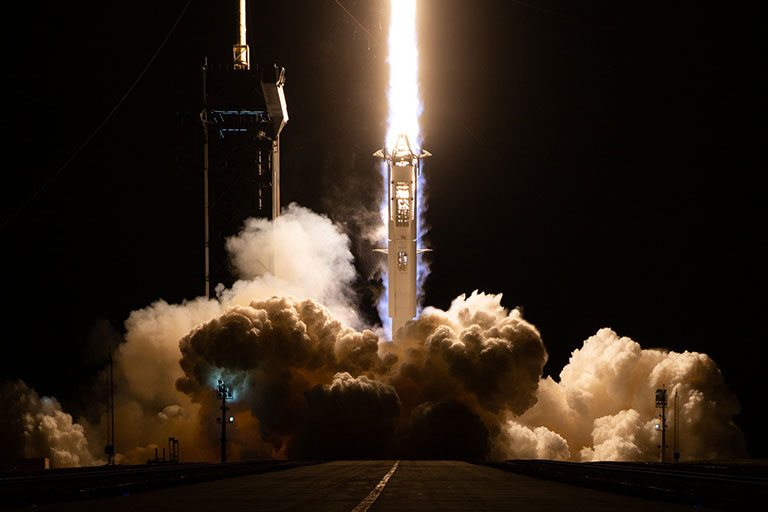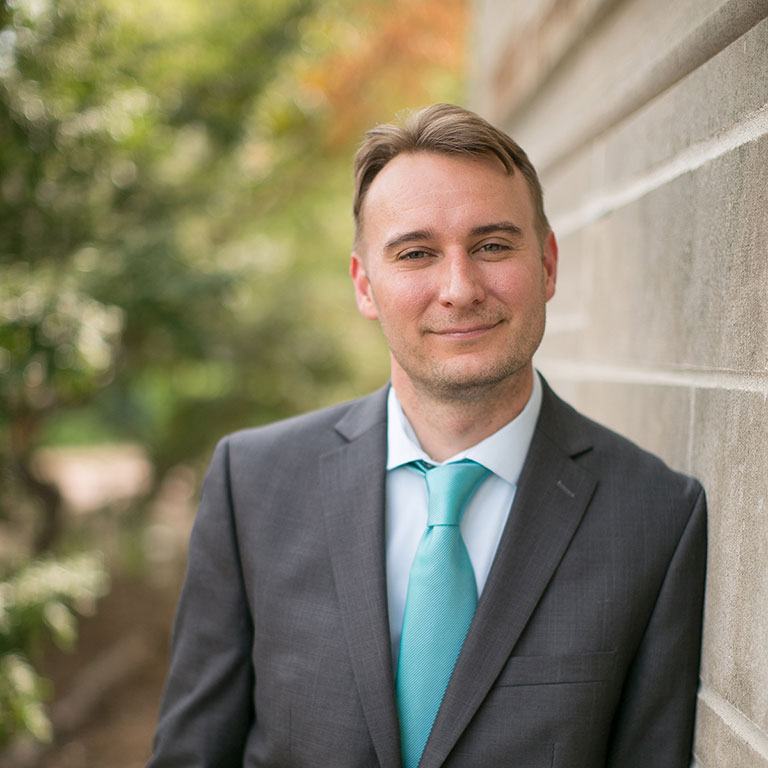For nearly 50 years, the Ostrom Workshop, based at Indiana University Bloomington, has explored how communities around the world govern themselves and their resources. Now, that exploration extends to the final frontier of outer space.
The Ostrom Workshop and partners at Laval University in Canada have received a $200,000 grant from the Carnegie Corp. of New York to expand their study of governance in space. The new grant builds on a previous $200,000 grant received in 2020 to work on the problem of space debris in Earth's orbit.
Current international space governance is an outdated "Cold War remnant" badly in need of redevelopment, according to Scott Shackelford, one of the study's lead researchers.
“New space treaties have been stalled since the early 1980s,” he said. “The commercial sector now leads with new technologies, activities, and business models, and these commercial activities are creating ambiguities in space law, pushing boundaries that are straining outdated systems.”
Shackelford is executive director of the Ostrom Workshop, chair of IU’s interdisciplinary Cybersecurity Program, and associate professor of business law and ethics at IU’s Kelley School of Business. He is co-leading the study with Eytan Tepper, research coordinator, and Jean-Frederic Morin, professor of political science, both at Laval University in Canada. They’re joined by colleagues from MIT and the University of San Francisco.
The Ostrom Workshop was founded at Indiana University in 1973 by the late economist and political scientist Elinor Ostrom and her husband, Vincent Ostrom.
Morin and Tepper have built a unique database of more than 1,500 international space actors—the countries, institutions, organizations, and companies that own or operate in objects in Earth’s orbit—and the institutional arrangements connecting them, which serves as the foundation for the new grant, called “Polycentric Multilateralism: Reimagining the Roles of International Institutions in Space Governance and Beyond.”
Shackelford said Elinor Ostrom’s Nobel Prize-winning work on polycentricity—a form of governance rooted in distributed leadership and multiple centers of decision making—has been proven to work on local levels, and toward the end of Ostrom’s career, she had been expanding those insights to climate change. Following that lead, the Workshop is taking on a different “global commons” as a proving ground.
Shackelford and his colleagues will test the applicability of Ostrom’s theories to governing outer space using the new dataset of space actors to model different scenarios. They also plan to create policy recommendations, such as leveraging regional and issue-specific forums, establishing a nonprofit for the registration of space-based property rights, and reconsidering the role that private space exploration corporations (including SpaceX and Blue Origin) play in outer space.
“The potential to apply the theories developed by Lin and her husband to global affairs has remained largely untapped,” Shackelford said, “but we believe polycentric governance could be a practical solution to collective action problems associated with governing outer space and space activities.”
In a polycentric model, Shackelford explained, institutions would function not as siloed, “top-down” decision-making centers, but as distributed, cooperative hubs, working together to coordinate work, set agendas, and ultimately, build trust.
“If our analyses demonstrate that polycentricity could be an effective, practical approach to addressing pressing issues in the space commons, it could highlight new ways for us to take on critical transnational challenges closer to home,” Shackelford said.

